Participants' experiences

INTERNATIONAL HORTICULTURAL SCIENCE
Alessandra Alario at Universidad Nacional Pedro Henríquez Ureña (UNPHU) – Repubblica Domenicana (mobility period: 07/2025 – 11/2025) Thesis supervisor: Prof.ssa Ornella Francioso
Thesis title: “Ethnobotanical Characterization of Annona squamosa L. and Guazuma ulmifolia Lam. in the community of Bayaguana, Dominican Republic: Traditinal Knowledge and Local Use Practices.”
I knew that two times a year the call “Thesis Abroad” would’ve been published, so I waited until it was the right time to participate. The first time I saw the call was on my institutional e-mail. I was so happy when I found out that I had been accepted! I found my host University on the very same call, although the previous project was over, I was able to find another one by connecting with them directly. A comprehensive quantitative analysis using different Ethnobotanical Indices was conducted, along with statistical correlation tests, to analyze open and closed responses of several interviews. Questions wondered about the knowledge, traditional uses and conservation practices of the plants A. squamosa and G. ulmifolia. […] The Ethnobotanical characterization aims at collocating the local knowledge of these plants into an international contest, while the descriptive and inferential statistics allowed to catch a glimpse of the traditional uses and cultural practice connected to these plants. I have analyzed data from 48 interviews. My job comprehended the codification of the data on Excel and the creation of a general codebook. After which I started analyzing the collected data through both descriptive and inferential statistics on the software R studio. I have then performed a literature review about the ethnobotanical characterization of different species around the world and identify the most suited Ethnobotanical indices and apply them. This experience changed my life. It was amazing flying to the other part of the world and confront myself with completely different cultures. For sure now I know how to use R like a pro, but the people I’ve met, the places I’ve been and the experiences I’ve lived are much more valuable to me than anything! I would do it again, because I feel like I’m a different person now and I grew a lot. […] I think that the only thing that shall be improved is the scholarship. My destination wasn’t cheap and the majority of the money from the call were used for the flight’s tickets. […]
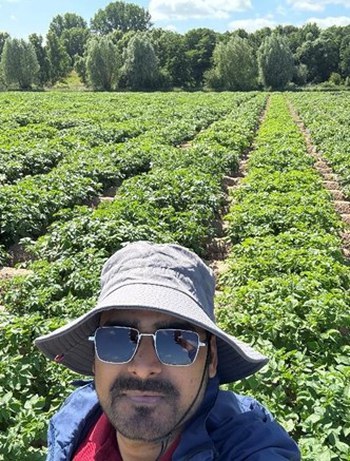
PRECISE AND SUSTAINABLE AGRICULTURE
Sarjit Pandey at Leibniz institute of plant genetics and crop plant research - IPK – Germany (mobility period: 05/2025 – 10/2025) Supervisor: Prof. Dario Mengoli
Title: “Potato Late Blight Resistance Phenotyping Using UAV-Based Multispectral Imaging”
I heard about this call during my classes, and I had always planned to apply for it. I chose this destination because the research topic closely matches my interests and career aspirations and IPK is one of the best-known research institutes in this field. Potato (Solanum tuberosum L.) is the fifth most important food crop globally, yet late blight (Phytophthora infestans) remains its most destructive disease, capable of causing complete yield loss within days. […] This study proposes a UAV-based multispectral workflow for high-throughput phenotyping of segregating populations. Canopy reflectance traits and vegetation indices will be integrated with visual disease assessments (AUDPC) to build phenomic prediction models using statistical and machine learning approaches. The research aims to deliver a scalable, non-destructive protocol for identifying late blight-resistant genotypes, supporting sustainable precision breeding. During the mobility period, I first focused on planning the field layout. Then, I sowed 500 different potato accessions in the field. After that, I worked on weeding and intercultural operations. I also collected data on the germination rate, flowering days, and disease resistance scores. I also used UAV-based data collection with a multispectral camera to collect imagery. The work finished with data analysis and report preparation. This experience taught me a lot, both technically and personally. I learned how to plan and carry out UAV flights, handle multispectral cameras, and follow field and lab protocols for late blight phenotyping. I gained experience in processing multispectral images (Agisoft Metashape), extracting vegetation indices (Python and QGIS), and analysing data statistically (e.g. in R) to link image traits with disease resistance. It also enhanced my teamwork and communication skills within an international research group, strengthened my English, and provided me with insight into German work culture, research standards, and everyday life abroad. I would definitely do it again and I would recommend it to other students because it helped me to shape my journey according to my aspirations.
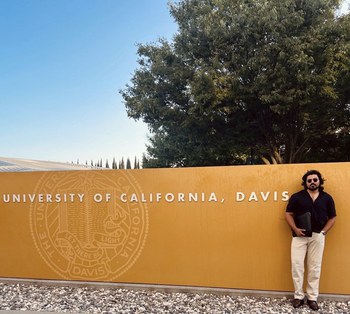
INTERNATIONAL HORTICULTURAL SCIENCE
Hamayun Shabir at UCDavis University of California Davis - USA (mobility period: 05/2025 – 10/2025) Supervisor: Prof. Francesco Orsini
Title: “Optimizing Fertilizer Management, Abiotic Stresses and Enhancing Tomato Yield in Soilless Cultivation through Biostimulant Application within the Water-Food-Energy Nexus”
I have been always keen about finding opportunities so after I was in 1st semester, I was always checking IMAHS website for such kind of opportunities so this is where I discovered it and also then via emails it kept me reminding of the opportunity abroad. Choosing University of California, Davis - the name itself defines its excellence in agricultural sciences - which always kept me motivated to do my research thesis at such prestigious university. I started my research as soon as I arrived the facilities were amazing and the research quality is great, rather than this I was always involved with other scholars meeting. […] [Ed. note: The student did not provide the Abstract when submitting the final report] I feel that this mobility gave me a whole lot experience of being at World class University doing research there learning how to do it, like designing trials, data collection and analysing it, rather than this being in a diverse culture further enhanced my public dealing skills and overall development. If I am given one more chance to do it, I will not think twice I will always love doing such activities that develop you not only academically but personally also, getting in touch with global students and professors is indeed a worth experience, for me being in a place to learn always new things and develop connections I would prefer again going, all the things are perfectly managed by the University of Bologna in terms of process, selection start and end, but what I feel is there should be increase in the monetary value to help more students.
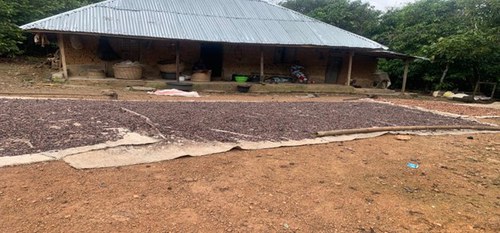
PRECISE AND SUSTAINABLE AGRICULTURE
Rahmat Gbemisola Mustaphai at Federal University of Technology, Akure - Nigeria (mobility period: 08/2025 – 10/2025)
Supervisor: Prof.ssa Antonella Samoggia
Title: “Perception of Fairness in the Cocoa Value Chain: Insights from Smallholders Farmers in Nigeria”
I found out about the call while checking for opportunities on the Department’s website. I choose this destination because it is the best place to collect the data needed for my thesis. Nigeria is the fourth largest producer of cocoa in the world and Ondo state is the largest producer of quality cocoa in Nigeria. Federal University of Technology is a reputable university and Prof. Fasina’s research works aligned with my thesis study. The study was conducted to determine the perception of fairness in Cocoa value chain by smallholder farmers in Nigeria. Multistage sampling procedures were used to select a representative sample of 150 respondents for the study from 12 communities in Ondo State. Data were collected using a questionnaire. Data collected were analyzed with descriptive statistics involving frequency distribution tables, mean, standard deviation and percentages. [...] The results showed that farmers with high educational level, farm size and years of experience perceive fairness as unfavorable. The drivers to value addition by farmers in the cocoa value chain are access to affordable loans, Fairer Value Chain Governance, Strong Farmer Cooperatives and Networks, Training and Capacity Building. The study concluded that as farmers increase their farm size, they expected more from the value chain, but they do not see the results of increasing scale of enterprise. Also, the more experienced or longer they have been farming, this makes them feel that fairness is poor. After my arrival I learnt how to use the koboapp for data analysis and I visited the farmers in these communities for data collection with structured questionnaires using the kobocollect app. Data collected on the field was presented to my supervisor abroad and analysis was carried out based on data collected. I would recommend the experience to anyone willing to go abroad for their thesis research, and I would like to do it again. […] I choose Nigeria because my research aligns with my future career plans. I think been able to choose your preferred destination and the support by the school was superb and it should not be changed whereby you will be limited to where you can go.
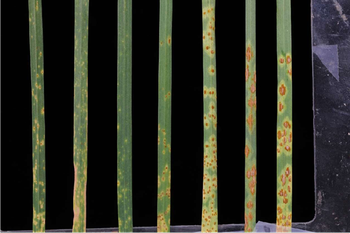
PRECISE AND SUSTAINABLE AGRICULTURE
Shruti Desai presso University of Minnesota – USA (periodo di attività: 12/2024 – 05/2025)
Relatore: Prof. Marco Maccaferri
Title: “Advancing Sustainable and Resilient Agriculture through Genetics and Plant Breeding: A Comprehensive Study on Wheat Rust Characterization”
I first learned about the call through an official email sent by DISTAL International Relations Office. I reached out to students who had previously taken part in this program to understand their experiences. Their feedback was extremely helpful. Additionally, I sought guidance from Prof. Maccaferri and Prof. Lucia Vanini and from international relation officer Dr.ssa Elena Santacroce who were all extremely supportive and provided me with more detailed information about the call. […] I chose the University of Minnesota because of its strong collaborative ties with the USDA-ARS Cereal Disease Laboratory and the presence of leading experts in the area of wheat rust resistance. […] This thesis project, aims to advance research in sustainable and resilient agriculture. The central focus of the research is on the genetic and phenotypic characterization of rust disease resistance in tetraploid wheat. […] During my stay at the University of Minnesota, I conducted research on wheat resistance to stem, stripe, and leaf rust, working on two key populations (GDP and TCC). Activities included planting, inoculation, disease scoring, and handling of rust spores in BSL-2 facilities. I also learned to use R Studio and TASSEL 5 for data analysis. Guided by Prof. Pablo and Prof. Brian, I gained practical skills in phenotyping, biosafety, and genetic analysis within an international research environment. I gained knowledge of wheat rust genetics and biosafety practices by working in BSL-2 facilities. I learned to analyze phenotypic data using R Studio and TASSEL 5, and became familiar with advanced research infrastructure. Collaborating with an international team improved my communication and organizational skills and both my technical and soft skills, and strengthened my motivation to address global agricultural challenges related to sustainability and climate resilience. I would absolutely recommend this experience and would gladly do it again. It has been one of the most enriching parts of my academic journey. […]
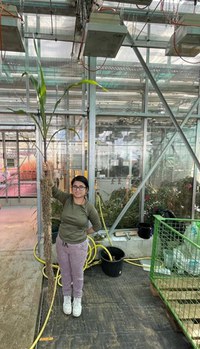
PRECISE AND SUSTAINABLE AGRICULTURE
Rashmi.Aryal presso Leibniz Institute of Plant Genetics and Crop Plant Research, IPK-Gatersleben – Germany (periodo di attività: 09/2024 – 03/2025)
Relatore: Prof. Marco Maccaferri
Title: “Investigation of root system architecture traits in a Triticum turgidum Tetraploid wheat Core Collection (TCC)”
I first learned about this opportunity through the course website at enrollment, but I fully understood it after our coordinator's detailed explanation in class. I had been working on root system architecture in Professor Marco Maccaferri’s lab since I began attending lectures on Plant Genetics. […] This exposure motivated me to conduct an experiment on root phenotyping for my master’s thesis. […] Professor Maccaferri recommended the Leibniz Institute of Plant Genetics and Crop Plant Research (IPK), which is renowned for its advanced automated phenotyping platform and exceptional research team. […] During my research, I performed root hair phenotyping on 475 genotypes, assessing root hair density and length. Additionally, I conducted a genome-wide association analysis using the Illumina 90K wheat SNP, carried out high-throughput phenotyping (HTP) with automated daily imaging in a rhizopot setup, and analyzed root images by defining the region of interest (ROI) for each pot. I have gained expertise in root hair research, including germination, rollups experiments, and microscopy imaging. I have hands-on experience with a high-tech phenotyping platform and proficiency in ImageJ for root studies and R Studio for data analysis. My skills also include working in controlled environments, handling chemicals, performing DNA/RNA extractions, and conducting field and greenhouse research, strengthening my practical knowledge in plant science. I would highly recommend this opportunity. It is an invaluable experience that provides deep insights into research. […] I gained a clear understanding of what research truly entails and how it is conducted in a rigorous scientific manner. Beyond the academic and technical learning, it was also an enjoyable and enriching experience. However, I believe that could be useful a training session for selected students. This would provide guidance on expectations, best practices, and key aspects to focus on, ensuring that participants are better prepared to make the most of the opportunity.
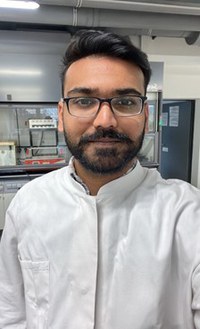
PRECISE AND SUSTAINABLE AGRICULTURE
Shreyash Milind Khandwe presso Geroge August University of Gottingen/ University of Kassel – Germany (periodo di attività: 04/2024 – 10/2024)
Relatore: Prof.ssa Barbara Paladino
Title: “Optimising livestock nutrition in northern Ghana by accounting for seasonal quality variations in pasture vegetation and crop residues”
I’ve became interested in this Call thanks to the University Email. I choose Geroge August University of Gottingen because I was already at that university for the ERASMUS + Study program and I’ve mainly performed laboratories activities. I believe I have acquired valuable new knowledge and skills during this experience. I have developed strong relationships with the university and my supervisor, which has greatly enhanced my interpersonal and professional skills. Additionally, working in the laboratory has given me hands-on experience with various instruments, where I learned how to handle and operate them effectively. This experience has also deepened my understanding of different protocols and methodologies, improving my technical competence and confidence in applying them to my research work. I would definitely recommend this experience and would gladly do it again. It has been highly valuable for both my personal and professional growth. The opportunity to work closely with my supervisor and the university has strengthened my research skills and broadened my understanding of laboratory work and methodologies. However, if there is one thing I would like to see improved, it would be having more structured training sessions on using advanced laboratory equipment and analytical software. This would help enhance efficiency and deepen technical expertise.
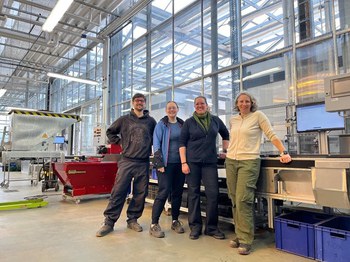
TECNOLOGIE AGRARIE
Guglielmo Piazzi presso Institute of Bio- and Geosciences (IBG-2) – Germany (periodo di attività: 04/2024 – 06/2024)
Relatore: Prof. Silvio Salvi
Title: “Root architecture analysis of wheat lines using an automated phenomic platform”
I found about the call thanks to my Professor Silvio Salvi and I chose Forschungszentrum Jülich as my destination, since is one of the best research centres in Europe for root phenotyping. […] During those months, we started with the rhizotron experiment on a RIL population of durum wheat. We had in total 3 replicas of 80 genotypes, so at the end we had 240 rhizotron boxes with a single plant, that we left for 25 days to grow in the rhizotron facility in Forschungszentrum Jülich. During and after the end of the experiment my main focus was on drawing the roots of these plants using the PaintRhizo software. I helped directly on Campus Klein-Altendorf field with the WISH-ROOT project by preparing 126 plots of different
genotypes of wheat and by collecting samples of soil and roots. This mobility allowed me to learn how to work in a group outside of a university environment; I learned how to work on an automated phenomic platform and the protocols involved in a rhizotron experiment; I learned how to use the PaintRhizo software and WinRhizo software; I learned the protocols to prepare an experimental field. I would recommend this experience to everyone because the work environment in Forschungszentrum Jülich is great both for the people and the amazing facilities that are in the research centre, I would love to have the possibility to work there again.
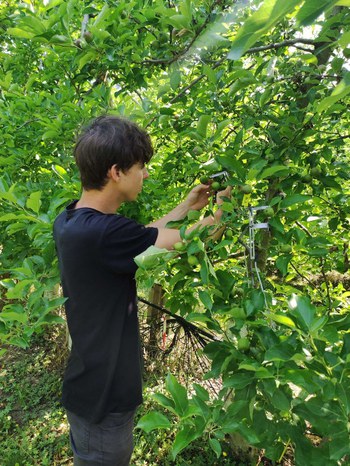
INTERNATIONAL HORTICULTURAL SCIENCE
Andrei Pasquali presso Sun'Agri – France (periodo di attività: 05/2023 – 07/2023)
Relatore: Prof.ssa Brunella Morandi
Title: “Assessment of the Ecophysiological and productive performance of fruit tree orchards under dynamic agrivoltaic systems
I was informed by Professor Brunella Morandi about the possibility of project in France in a company that deals with research in the agrivoltaic sector. Coming to know about this call, through the university website. […] Sun’agri of Montpellier has a consolidated relationship of collaboration with the University of Bologna. This has made it possible to simplify contacts with the company. […] Several activities were carried out during the mobility period: the use of fruit gauges for the fruit growth monitoring, the measurement of water potential using a pressure chamber, the measurement of specific leaf area with a leaf area meter, the installation of thermocouples for temperature monitoring for fruits and leaves and the use of an infrared camera for organs temperature monitoring. […] Furthermore, among the activities carried out, I would like to mention the learning of protocol drafting techniques for the field activities, in order to determine the most interesting variable for that specific study. The organizational aspect allowed me, among other things, to learn the use of a specific software (Git lab) which allows online sharing of files and to have the possibility to organize all the other activities. […] I consider this the most formative and the most useful experience, as it allowed me to leave the classic university canon, and enter the hearth of a corporative reality, particularly in a foreign country. I believe that facing this type of experience has allowed me to grow professionally, but also from a more personal point of view. In conclusion, I recommend this experience as it allows us students to improve the curriculum, and also to take advantage of us for the future world of work.
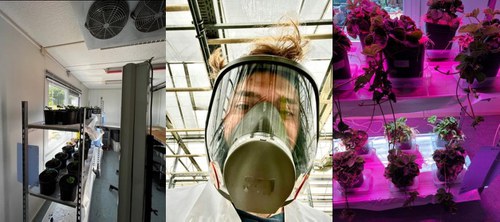
SCIENZE E TECNOLOGIE AGRARIE
Luca Rasi presso Biobest company (periodo di attività: 05/2023 – 08/2023)
Relatore: Prof. Fabio Sgolastra
Title: “Evaluation of the efficiency of two microbial candidates, used as bio-control agent against Botrytis cinerea, spread by Entomovectoring”
I find out about the call by an email about “thesis preparation abroad” from “DISTAL – Internazionalizzazione”. After my Erasmus, I wanted to enhance my visibility in terms of working profile so I looked for an internship in a big firm abroad. The destination I choose was a pure fortuity because I was trying to access at Wag University but thanks to my previous research chiefs, I found out the bumble team leader contact at Biobest and I agreed to follow up their trials. […] The aim of this master thesis topic was to explore new microorganisms to be used for entomovectoring technology. More specifically, the potential of fungi and yeast species occurring naturally on plants as biocontrol agents against plant pathogens, such as Botrytis cinerea and Mucor sp., were assessed. […] I’ve worked in the microbiology lab, gaining confidence with biocontrol agents and all the protocols. Afterwards, I worked in the research trailer
and the Green Lab, testing treatments applied to plants and samples. I also worked in the IT office to get used to the R software. During my mobility period I have learn […] lab techniques and insect handling, from the rearing to their application and, finally, R software. I really suggest this experience because it is the most useful way for increasing the level of the master’s degree overall and to understand which are our weaknesses and lack of knowledge and straighten them. This facility does not provide a course about R software, it would be useful a course about it or implement the teaching hours about that statistical software used worldwide during the study course at DISTAL.